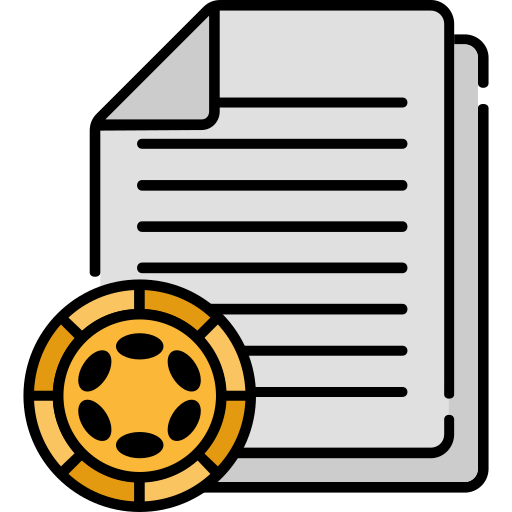Blogs
Analyzing the Syllabus: How to Effectively Prepare for IAS Prelims and Mains
Analyzing the Syllabus: How to Effectively Prepare for IAS Prelims and Mains
The Indian Administrative Service (IAS) examination, conducted by the Union Public Service Commission (UPSC), is one of the most prestigious and challenging exams in India. Preparing for the IAS Prelims and Mains requires a strategic approach, diligent study, and a thorough understanding of the syllabus. Here, we will break down how to effectively analyze the syllabus and prepare for both stages of the IAS exam.
Understanding the IAS Exam Structure
The IAS exam consists of three stages: Preliminary Examination (Prelims), Main Examination (Mains), and the Interview (Personality Test). Each stage requires a unique preparation strategy.

Prelims
This is a screening test consisting of two objective-type papers: General Studies Paper I and General Studies Paper II (CSAT).

Mains
This stage comprises nine descriptive papers, including Essay, General Studies, and Optional subjects.

Interview
The final stage assesses the candidate’s personality and suitability for a career in public service.
Analyzing the Prelims Syllabus
The Prelims syllabus is extensive and covers a wide range of topics. Here’s how you can break it down:
General Studies Paper I
- Current Affairs: Stay updated with national and international events. Regularly read newspapers like The Hindu, Indian Express, and follow credible online news portals.
- History of India and Indian National Movement: Focus on NCERT books from Class VI to XII and refer to standard books like Bipin Chandra’s “India’s Struggle for Independence”.
- Indian and World Geography: NCERT books and the “Certificate Physical and Human Geography” by Goh Cheng Leong are crucial.
- Indian Polity and Governance: M. Laxmikanth’s “Indian Polity” is a must-read.
- Economic and Social Development: Understand basic economic concepts and current economic issues. Books like Ramesh Singh’s “Indian Economy” are helpful.
- Environment and Ecology: Study from Shankar IAS’s “Environment” book.
- General Science: Focus on NCERT science books up to Class X and keep abreast of scientific developments.
General Studies Paper II (CSAT)
- Comprehension: Practice reading comprehension from various sources.
- Logical Reasoning and Analytical Ability: Solve previous years’ question papers and refer to standard reasoning books.
- Decision Making and Problem Solving: Engage in situational analysis exercises.
- Basic Numeracy and Data Interpretation: Revise Class X level mathematics.
Analyzing the Mains Syllabus
The Mains syllabus is more detailed and requires a deep understanding of concepts. Here’s a brief overview of how to approach each paper:

Essay Paper: Practice writing essays on diverse topics. Develop a coherent structure and substantiate your arguments with facts and examples.
General Studies Papers I-IV

General Studies I: Covers Indian Heritage and Culture, History, and Geography of the World and Society. Use resources like NCERT books, and reference books like “World History” by Norman Lowe.

General Studies II: Focuses on Governance, Constitution, Polity, Social Justice, and International Relations. M. Laxmikanth’s “Indian Polity” and current affairs magazines are key.

General Studies III: Includes Technology, Economic Development, Biodiversity, Environment, Security, and Disaster Management. Refer to Ramesh Singh for economics, and Yojana and Kurukshetra magazines for current issues.

General Studies IV: Ethics, Integrity, and Aptitude. Books like “Ethics, Integrity, and Aptitude” by Subba Rao and P. N. Roy Chowdhury are recommended.

Optional Subject Papers
Choose an optional subject that you are comfortable with and interested in. Study the syllabus thoroughly and refer to standard textbooks and previous years’ question papers.

Language Papers
These are qualifying papers in any Indian language and English. Practice writing and comprehension to enhance your skills.
Effective Preparation Strategies
Create a Study Plan
- Timetable: Develop a realistic timetable allocating specific time slots for each subject.
- Daily Targets: Set daily targets and review your progress regularly.
- Revision: Allocate ample time for revision, ensuring you revisit each topic multiple times.
Utilize Quality Study Materials
- Books: Invest in recommended books and NCERTs.
- Online Resources: Use online platforms like Vision IAS, Insights on India, and Unacademy for additional resources and mock tests.
- Current Affairs: Regularly update your notes from reliable current affairs sources.
Practice Answer Writing
- Mock Tests: Regularly take mock tests for both Prelims and Mains.
- Previous Years’ Papers: Solve previous years’ question papers to understand the exam pattern and improve your answer writing skills.
Stay Healthy
- Diet and Exercise: Maintain a balanced diet and regular exercise routine to stay physically and mentally fit.
- Mindfulness: Practice mindfulness or meditation to manage stress and enhance concentration.
Conclusion
Cracking the IAS exam requires a blend of smart work and hard work. By meticulously analyzing the syllabus, creating a structured study plan, and consistently revising and practicing, you can significantly enhance your chances of success. Stay focused, stay motivated, and keep pushing your boundaries. For more insights and detailed guidance, follow our blog and stay tuned for expert tips and strategies on IAS preparation.